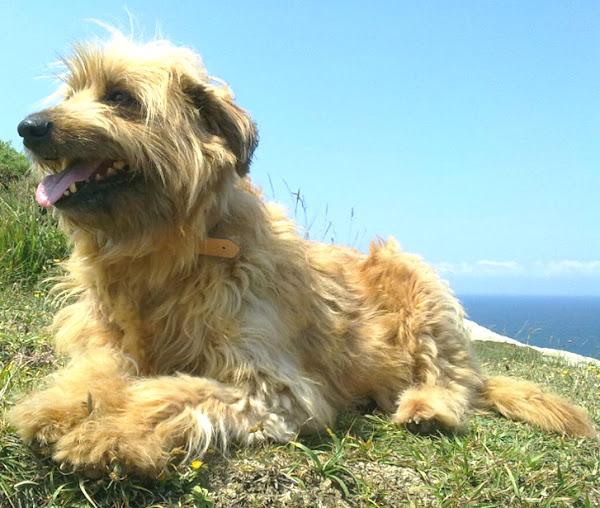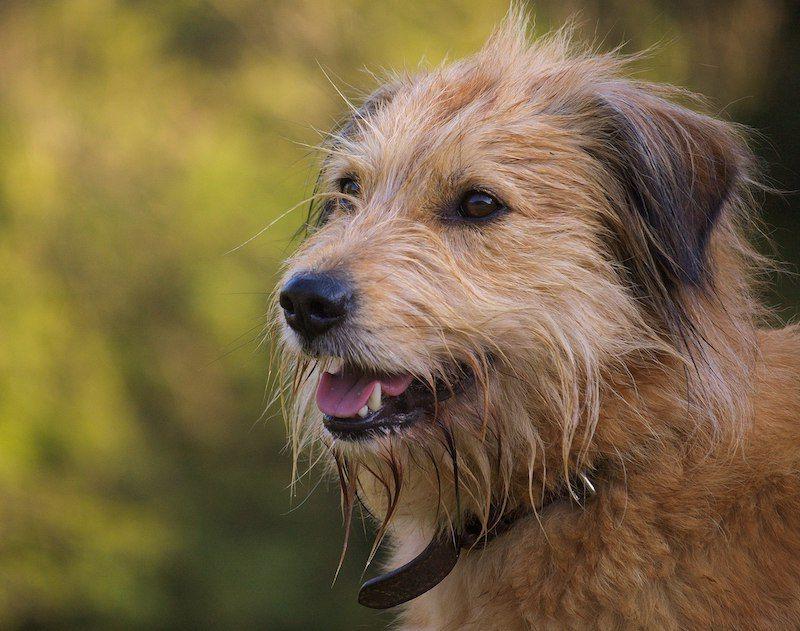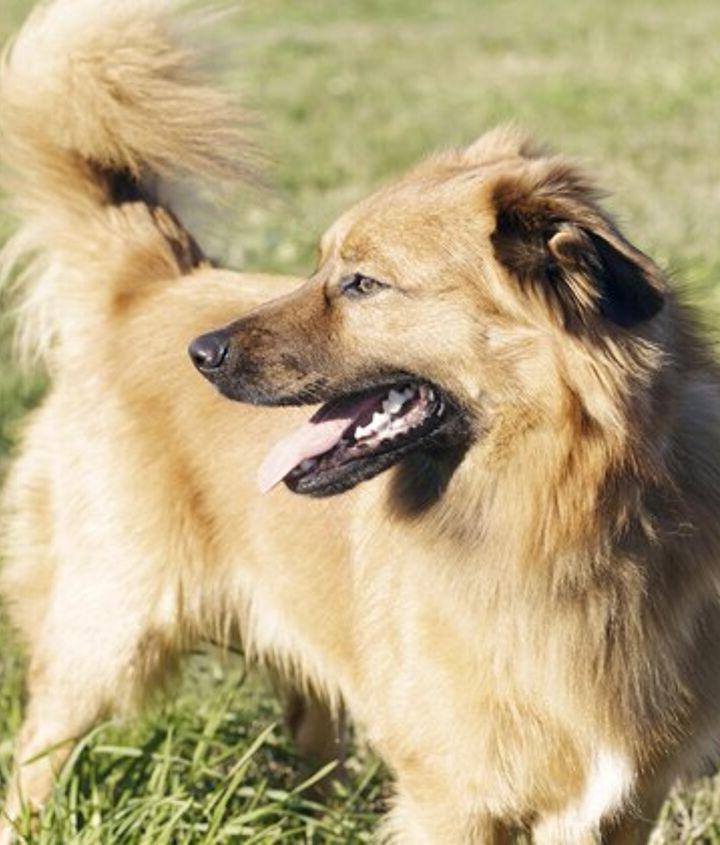- Breed Category: Herding
- Country of Origin: Spain
- Average Height: Males 47-61 cm, Females 46-59 cm
- Average Weight: Males 18-36 kg, Females 17-29 kg
- Average Life Span: 12-15 years
- Grooming Requirements: Moderate, regular brushing needed
- Exercise Requirements: High, needs daily exercise
- Coat Type: Medium, dense
- Coat Color Variations: Fawn, red, black
- Shedding Level: Moderate
- Ear Type: Semi-erect
- Tail Type: Long, bushy
- Temperament: Loyal, intelligent, energetic
- Intelligence Level: High
- Barking Tendency: Moderate
- Compatibility with Children: Good, with proper socialisation
- Compatibility with Other Pets: Generally good
- Training Ease: Relatively easy, eager to learn
- Common Health Issues: Hip dysplasia, eye problems
- Dietary Needs: High-quality, balanced diet
- Energy Level: High
- Drooling Tendency: Low
- Sensitivity to Weather: Moderate, prefers mild climates
- Overall Maintenance Level: Moderate
- Original Purpose: Herding livestock
- Year of Recognition by Kennel Clubs: 1996
- Apartment Friendly: Not ideal, needs space
- Best Suited For: Active families, rural settings
- Cost of Ownership: Moderate
- Unique Traits: Strong herding instincts
- Cultural Significance: Important in Basque culture
Imagine a dog with a rich history, a loyal heart, and a keen intelligence. That’s the Basque Shepherd Dog for you. Originating from the Basque Country, this breed has been a steadfast companion to shepherds for centuries. Known for their agility and herding prowess, these dogs have played a crucial role in managing livestock across rugged terrains. This article aims to delve into the unique characteristics, fascinating history, and essential care tips for the Basque Shepherd Dog. Understanding their past helps us appreciate their present, and knowing how to care for them ensures they thrive in our homes. Whether you’re a seasoned dog owner or new to the breed, there’s much to discover about these remarkable dogs.
Basque Shepherd Dog: A Heritage of Herding Excellence

Early Development of the Breed
The Basque Shepherd Dog has roots that stretch back centuries, evolving alongside the pastoral lifestyle of the Basque people. This breed was developed specifically for herding, with a focus on intelligence and agility. Over time, these dogs became indispensable to shepherds, adapting to the challenging landscapes of the Basque Country.
Role in Basque Herding and Farming
In the rugged hills and valleys of the Basque region, these dogs have been more than just helpers; they’ve been partners. Their keen instincts and quick reflexes make them perfect for managing sheep and cattle, ensuring the smooth running of farms. Their ability to work independently and make decisions on the fly is a testament to their training and natural aptitude.
Key Historical Figures and Cultural Significance
Throughout history, the Basque Shepherd Dog has been celebrated in local folklore and traditions. Figures like shepherds and farmers have long relied on these dogs, and their stories are woven into the cultural fabric of the region. This breed is not just a working dog but a symbol of the Basque way of life.
Physical Characteristics
With a medium build, the Basque Shepherd Dog is both sturdy and agile. Their coat, often a mix of colours, provides protection against the elements. Their expressive eyes and alert ears reflect their intelligence and readiness to work. These physical traits, combined with their energetic nature, make them well-suited for active lifestyles.
Appearance and Unique Traits
The Basque Shepherd Dog is a medium-sized breed, known for its robust and agile physique. Their coat is typically a blend of colours, ranging from fawn to black, often with distinctive markings that add to their charm. This coat not only gives them a striking appearance but also serves as a shield against harsh weather conditions.
One of the standout features of this breed is their agility and endurance. These dogs are built for action, with a natural ability to navigate challenging terrains. Their strong, muscular build allows them to work tirelessly, making them ideal for herding tasks.
Temperament and Behaviour
Basque Shepherd Dogs are known for their intelligent and alert nature. They are quick learners, always eager to please their owners. This makes them highly trainable and responsive to commands. Their temperament is generally friendly and loyal, making them excellent companions for families.
In terms of behaviour, these dogs are energetic and thrive in environments where they have a job to do. They enjoy being active and need regular exercise to keep them happy and healthy. Their herding instincts mean they are naturally protective, often watching over their family with a keen eye.
Personality and Suitability

Typical Personality Traits
The Basque Shepherd Dog is a bundle of loyalty and intelligence. These dogs are known for their sharp minds and quick learning abilities. They have a high energy level, which makes them perfect for active families or individuals who love the outdoors. Their loyalty is unmatched, often forming strong bonds with their human companions.
Suitability as a Family Pet and Working Dog
As a family pet, the Basque Shepherd Dog is a fantastic choice. Their friendly nature and protective instincts make them great with kids. They thrive in environments where they have a role, whether it’s herding on a farm or being a loving family member. Their working dog heritage means they excel in tasks that require focus and determination.
Interaction with Children and Other Animals
These dogs are generally good with children, often displaying patience and gentleness. Their herding instincts might lead them to try and ’round up’ kids during playtime, which can be both amusing and endearing. With other animals, they usually get along well, especially if socialised from a young age.
Training and Exercise Needs
Training a Basque Shepherd Dog is usually a rewarding experience due to their eagerness to learn. Consistent, positive reinforcement works best. They need plenty of exercise to burn off their abundant energy. Regular walks, playtime, and mental stimulation are essential to keep them happy and healthy.
Training, Exercise, and Health

Importance of Early Training and Socialisation
Getting a Basque Shepherd Dog off to a good start with early training and socialisation is crucial. These dogs are naturally intelligent and eager to learn, so introducing them to various environments, people, and other animals early on helps them grow into well-rounded adults. This foundation is key to preventing behavioural issues and ensuring they adapt well to different situations.
Recommended Training Techniques
When it comes to training, positive reinforcement is the way to go. These dogs respond well to praise, treats, and play as rewards. Consistency is important, so regular training sessions that are short and engaging work best. Incorporating games and challenges keeps their minds sharp and makes learning fun.
Daily Exercise Requirements and Activities They Enjoy
Basque Shepherd Dogs are energetic and need plenty of exercise to stay happy. Daily walks, runs, or hikes are great for burning off energy. They also love activities that challenge their minds, like agility courses or herding games. Keeping them active is essential for their physical and mental well-being.
Health and Lifespan
Generally, Basque Shepherd Dogs are healthy, with a lifespan of around 12 to 15 years. Regular vet check-ups, a balanced diet, and plenty of exercise contribute to their longevity. Like all breeds, they can be prone to certain health issues, so staying informed and proactive about their health is important.
Health and Care for the Basque Shepherd Dog

Common Health Issues
Basque Shepherd Dogs are generally robust, but like any breed, they can face certain health challenges. Hip dysplasia and eye conditions are occasionally seen, so regular vet visits are crucial. Keeping an eye on their weight and ensuring they get enough exercise can help mitigate these issues.
Average Lifespan and Health Tips
With proper care, these dogs typically live between 12 to 15 years. To keep them healthy, provide a balanced diet rich in nutrients and ensure they have plenty of physical activity. Regular check-ups with the vet will help catch any potential health problems early.
Preventative Care Recommendations
Preventative care is key to a long, healthy life. Regular vaccinations, flea and tick prevention, and dental care are essential. Keeping their ears clean and checking for any signs of infection can prevent common issues.
Grooming and Maintenance
Their coat requires regular brushing to keep it free from tangles and to remove loose hair. Bathing should be done as needed, but not too frequently to avoid stripping natural oils. Regular nail trimming and teeth brushing are also important parts of their grooming routine.
Coat Care and Grooming Routines
Shedding and Seasonal Grooming Tips
The Basque Shepherd Dog’s coat is not just for show; it serves a practical purpose, offering protection against the elements. Regular brushing is essential to keep their coat healthy and free from tangles. During shedding seasons, which typically occur in spring and autumn, you’ll notice an increase in loose hair. Brushing more frequently during these times helps manage shedding and keeps your home cleaner.
Bathing should be done as needed, but not too often. Over-bathing can strip the coat of its natural oils, which are crucial for maintaining its health and shine. A good rule of thumb is to bathe them when they start to smell or if they get particularly dirty.
Diet and Nutrition
A balanced diet is vital for the Basque Shepherd Dog’s overall health and well-being. High-quality dog food that meets their nutritional needs is a must. Look for foods rich in protein, healthy fats, and essential vitamins and minerals. These dogs are active and energetic, so their diet should support their lifestyle.
Portion control is important to prevent obesity, which can lead to other health issues. Always provide fresh water and consider consulting with a vet to tailor a diet plan that suits your dog’s specific needs. Regularly monitoring their weight and adjusting their diet as needed will help keep them in top shape.
Nutritional Needs and Feeding Guidelines

Optimal Nutrition for Health
Feeding your Basque Shepherd Dog a balanced diet is crucial for their health and vitality. Opt for high-quality dog food that provides a good mix of protein, healthy fats, and essential vitamins and minerals. These nutrients support their active lifestyle and help maintain their muscular build.
Foods to Include and Avoid
Include lean meats, fish, and vegetables in their diet for optimal nutrition. Avoid foods high in fillers, artificial additives, and excessive grains, as these can lead to digestive issues and weight gain. Fresh water should always be available to keep them hydrated.
Feeding Schedules and Portion Recommendations
Establish a consistent feeding schedule, typically twice a day, to help regulate their metabolism and energy levels. Portion sizes should be based on their age, weight, and activity level. Consult your vet for personalised recommendations to ensure they’re getting the right amount of food.
Fun Facts and Trivia
Did you know the Basque Shepherd Dog is one of the oldest herding breeds in Europe? Their history dates back centuries, and they’ve been integral to the pastoral lifestyle of the Basque people. Their intelligence and agility make them not just great workers but also fascinating companions.
Famous Basque Shepherd Dogs in Media and History
Notable Appearances in Media
While the Basque Shepherd Dog might not be as widely recognised in mainstream media as some other breeds, they have made their mark in regional films and documentaries. These appearances often highlight their impressive herding skills and deep connection with the Basque culture. Their agility and intelligence make them a natural fit for roles that require quick thinking and action.
Historical Significance
Historically, the Basque Shepherd Dog has been a vital part of the Basque community. They are often featured in local folklore and stories, symbolising loyalty and hard work. These dogs have been depicted in various forms of art, from paintings to sculptures, celebrating their role in the pastoral life of the Basque people.
Interesting Tidbits
One fascinating fact about the Basque Shepherd Dog is their unique ability to understand and respond to a variety of commands, often in the Basque language. This linguistic adaptability showcases their intelligence and deep bond with their handlers. Additionally, their keen sense of direction and ability to navigate rugged terrains have made them indispensable to shepherds throughout history.
Final Thoughts
The Basque Shepherd Dog embodies loyalty and intelligence. This breed’s rich history and herding excellence make it a remarkable companion. Balancing high energy with a loving temperament, they thrive in active environments and form strong bonds with families. Embracing their unique traits and cultural significance enriches the experience of owning such a dog. Consider welcoming a Basque Shepherd Dog into your life for a loyal and energetic partner.
